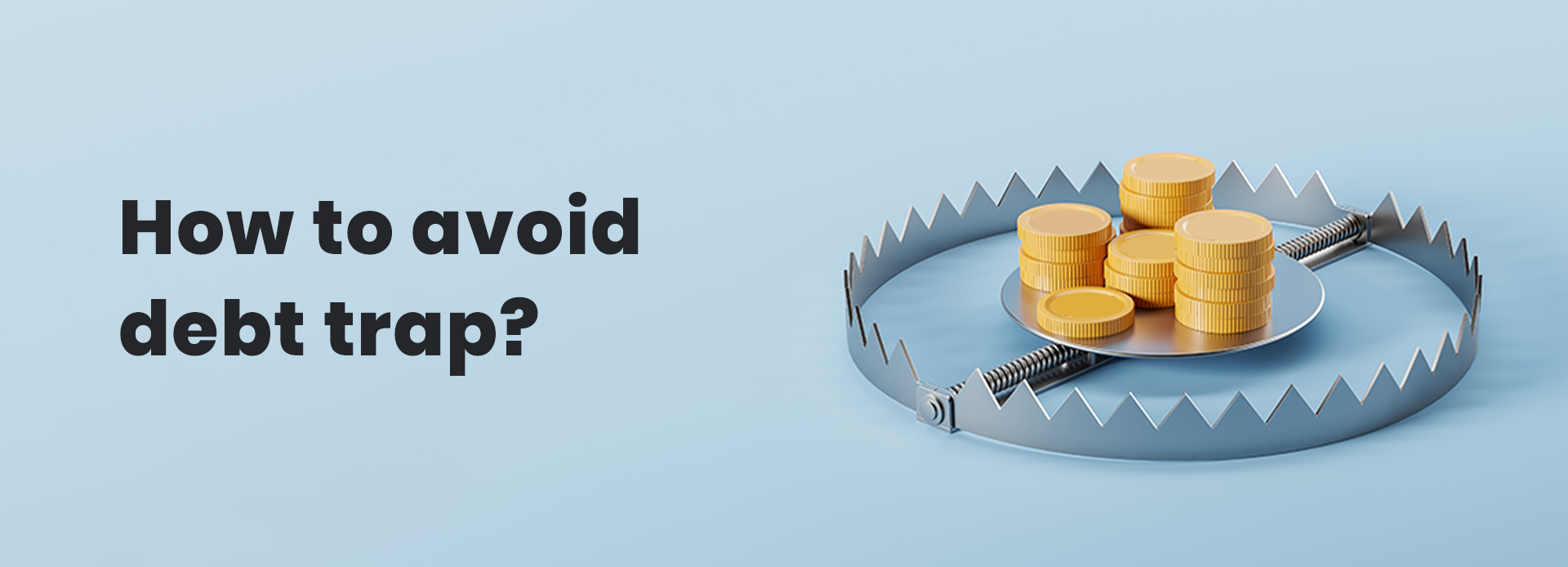
How to avoid debt trap?
10 December 2023, - By Gaurav Nijhawan, Marketing Head, Digital Strategy and Analytics - IndusInd Bank
“Some debts are fun when you are acquiring them, but none are fun when you set about retiring them.” - Ogden Nash
Don’t bite more than chew is an age-old saying that’s even true in the modern times. Given the growing aspirations of a young Indian population, loans are a means to achieve things early in life but it’s important to be prudent to avoid falling into a debt trap.
What’s a debt trap?
A debt trap is a situation where the debt you owe goes beyond what you can pay back. In-order to get out of this difficulty, you would need to borrow more to pay off the previous debt which will further lead to a vicious circle and ultimately a debt trap. This is a situation that can impact a lot of consumers and can impact their financial and health well-being.
For example – If you have a credit card bill and you go beyond your means and spend higher for a month then you can pay off and only pay the minimum due amount and carry the debt forward and continue this, eventually you would need to borrow more money from other sources to pay off this debt. Before you even realize, you’ve already fallen into a debt trap. This can lead to a long battle of fighting yourself out of a debt trap.
But there are ways of avoiding this debt trap and lead a financially sound life.
Here are a few tips that can help you avoid this debt trap
1. Understand and analyze your financial situation
It’s very important to keep an eye on your monthly expenses and understand what could be a good debt and what would be a bad debt for you.
Some examples of a good debt include home loans, loans to upgrade your home, lifestyle, vehicle loan, occasion-based loans for wedding or education which is a need and you have the ability of paying them back on time.
Some examples of bad debt include missing your credit card payments, getting more debt to pay off an existing debt.
Try your hand at using expense tracker apps allowing you to set monthly budgets and monitor your spends across different bank accounts & merchants. Make use of spends analyzer feature on the INDIE by IndusInd Bank App for smart money management.
You can easily download it from Play Store or App Store:
https://play.google.com/store/apps/details?id=com.indusind.indie
https://apps.apple.com/in/app/indie-by-indusind-bank/id1615506534
2. Control your emotions and don’t go for impulse purchases
While it’s important to enjoy life and aspire for more, it’s also important to avoid impulse purchases. Be it the latest gadget, or new car, it’s definitely understandable to enjoy life but it’s equally important not to get swayed by your emotions and make bad decisions. As a general rule, if you can follow 50/30/20 – 50% of spends on essentials like food, bills, etc. 30% of spends on discretionary spending like upgrading to the latest gadgets, etc. and 20% of spends should go to savings every month.
3. Create an emergency fund
Always have an emergency fund. In today’s scenario where there’s some uncertainty of jobs and funds crunch it is important to have a surplus that can get you past at least 3-6 months in-case you are out of job owing to any situation. This would help you avoid taking any burden of debt in tough financial times.
4. Make use of line of credit
A line of credit can be offered to you by your bank if you’ve maintained a good credit worthiness, CIBIL score, and healthy financial habits. Here’s how it may help you
a). Readily available credit line which you can access anytime
b). You can withdraw funds as much as you need from the approved limit and pay interest only on the amount utilized
c). You also get to choose a flexible repayment schedule
d). Withdraw funds any time, multiple times
5. Choose your Lender carefully
- Borrow funds from an RBI approved entity only
- Be careful while giving permissions to apps requiring access to your personal details
- Check out reviews on Play Store and App Store
- Check your eligibility and take loans based on your needs and never stretch too much
- Check for any hidden charges
Conclusion
Making sound financial decisions can keep you out of the debt trap. It’s important to keep a track of your expenditure and borrow only as much as you need and not go overboard with your expenses. Make use of only RBI approved and registered apps and compare the interest rates, benefits and features being offered by the lender so that you pay interest only on the amount you need. Being aware of these will go a long way to avoid getting into a debt trap.





